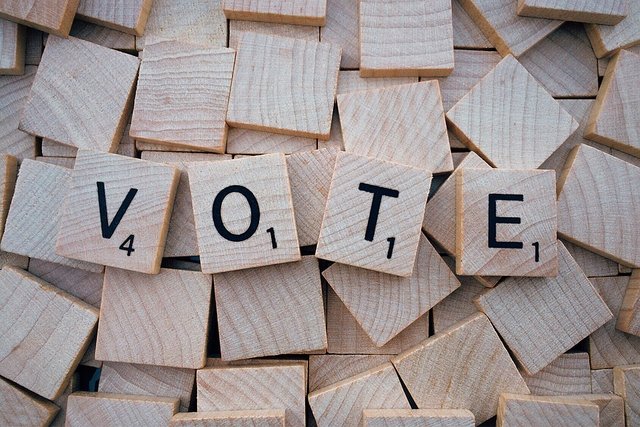#SouthAfricanElections2019: Is the future of a democratic South Africa rigged?
MILLIONS of South Africans have officially cast their vote in the 2019 elections which many hope will bring about the much-needed change the country sorely needs, but many have been left wondering whether or not the voting process has been fair.

IMAGE SOURCE: pixabay.com
A country quite literally in political turmoil, South Africa and its people have now been met with the breaking news event in which multiple people have been arrested for voting more than once.
Amid this, a plan revealed indicating how even Russia has been implicated in a scheme which aimed to sway the public by discrediting two opposition parties - the Democratic Alliance and the Economic Freedom Fighters - and elevating support for the ruling government party, the African National Congress.
Further fears have mounted following the discovery of numerous ballot boxes which had been discovered in the city Midrand in Gauteng - seals broken and the voting sheets blank.
The local offices for the Independent Electoral Commission (IEC) had said that the ballot papers and boxes had not been used during the voting period and offered that there were no irregularities.
ALSO READ: Elections 2019: The IEC to conduct a sample audit of election results
In Scottburgh, a tiny South Coast town situated along the coast of KwaZulu-Natal, multiple voters reported that their names had not been present on the voters' roll, despite having registered to vote during the 2019 elections.
Tickets issued indicated that they had indeed registered however, some voters claimed that others had not bothered to question IEC staff present about the irregularity.
Others who insisted that they had registered were allowed to vote after various details were captured manually. By this time, according to a couple interviewed, other potentially registered voters had already left without casting their vote.
In the same province - KwaZulu-Natal - some 19 people have been arrested and taken into custody pending an investigation into voter fraud.
It is alleged that those arrested had voted multiple times at various voting stations. The IEC is conducting an investigation into the matter and is currently auditing the votes.
ALSO READ: At least 19 arrested for double voting in KZN
At a media briefing on Thursday, the IEC said that it would be conducting an urgent audit of votes at a sample of locations in a bid to test whether or not double voting had been taking place.
The IEC monitors voter fraud through:
- Voters' roll which only allows for registered voters to be able to vote, and only vote once per single registration
- Voters are required to produce a valid South Africa Identity document before voting
- The same document is scanned prior to voting
- The voter's thumb is marked with a special ink - supposedly this ink is unable to be removed and goes away over a period of time (An investigation has just been luanched into this claim after a member of parliament proved it could be removed and attempted to vote a second time - the member of parliament revealed this after the attempt to vote proved possible)
- The completion of a form containing the details of voters and the signing of a sworn declaration by voters where they vote at a voting station at which they are not registered
- Party agents and observers monitoring all aspects of the voting, counting and results capturing process
In-built system-based exception reports for which various tolerance levels have been set
In a statement released by the IEC, it said:
"As part of the process of finalizing the results of the elections, the Commission will assess data from scanners, VEC 4 forms (used when voters vote outside their voting districts) and the voters’ roll to identify potential risks.
Where evidence is found to support electoral fraud, the Electoral Commission will firstly quarantine the results of the affected voting districts and secondly will pursue criminal charges against the perpetrators.
The electoral process also allows for objections to be raised by political parties throughout the process. This includes instances where they believe a voter was ineligible to vote or has voted more than once."
As for the marker pens used, the IEC said:
- Approximately 200 000 pens were procured through the normal open tender process according to specifications set by the Electoral Commission. In an attempt to increase the effectiveness of the pens, the Electoral Commission had raised the percentage of silver nitrate from 15 percent used in previous elections to 20 percent.
Meanwhile, the Russian scandal involving Russian political technologist, Peter Bychkov, also known as 'Putin's chef' has drawn much interest.
According to a report in the DAILY MAVERICK through an NGO called Association for Free Research and International Co-operation (AFRIC) attempts to influence the outcome of the vote would/could have been made through the means of a disinformation campaign.
Documents reveal the intent of creating a video titled 'EFF manifesto sucks' and further highlights the intention to create a 'deep disinformation' campaign on both direct opposition parties to the ANC, the EFF and the DA - as well as their leaders, respectively, Julius Malema and Mmusi Maimane.
The campaign plans included the influencing of “public rhetoric”, “generating and disseminating video content”, “coordinating with a loyal pool of journalists” and “producing pro-ANC videos”.
ALSO VIEW: A live tally of the votes as the count kicks off
By law, the Electoral Commission had seven days in which to announce the results of the elections.